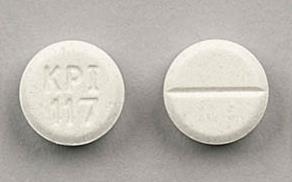This paper makes me ask: How many anti-depressants are you expected to try (and many of them are acknowledged to make things worse to begin with, and require weeks to ramp up and then tail off) before you might, if very lucky, get the chance to try liothyronine (T3)?
(And given current GP/endo attitudes, how long will anyone continue to get the liothyronine, no matter how effective it is?)
Minerva Endocrinol. 2013 Dec;38(4):365-77.
Hypothyroidism and depression: salient aspects of pathogenesis and management.
Duntas LH, Maillis A.
Source
Endocrine Unit, Evgenidion Hospital, University of Athens, Athens, Greece - ledunt@otenet.gr.
Abstract
Hypothyroidism has been linked to depression as there is irrefutable evidence that it triggers affective disease and psychic disorders. Depressive patients have a higher frequency of hypothyroidism and patients with hypothyroidism have a higher occurrence of depressive syndrome. Hypothyroidism exhibits considerable alterations in blood flow and glucose metabolism in the brain. Furthermore, patients with major depression may have structural abnormalities of the hippocampus that can affect memory performance. Thyroid peroxidase antibodies have, moreover, been positively associated with trait markers of depression. Depressive symptomatology is variable and is influenced by susceptibility and the degree, though not always, of thyroid failure. In addition, glucose homeostasis and rapid weight loss have been associated to thyroid hormones and increased depressive symptoms. Thyroxine treatment in patients older than 65 years does not improve cognition. In contrast, T3 administration is the therapy of choice in patients with resistance to antidepressive drugs, and especially to SSIR. Genetic variants of thyroid hormone transporters or of deiodinases I and II may predispose to depression and, therefore, a personalized approach should be implemented.
PMID: 24285104 [PubMed - in process]
ncbi.nlm.nih.gov/pubmed/242...
Rod
Image is of a 50mcg Cytomel tablet
